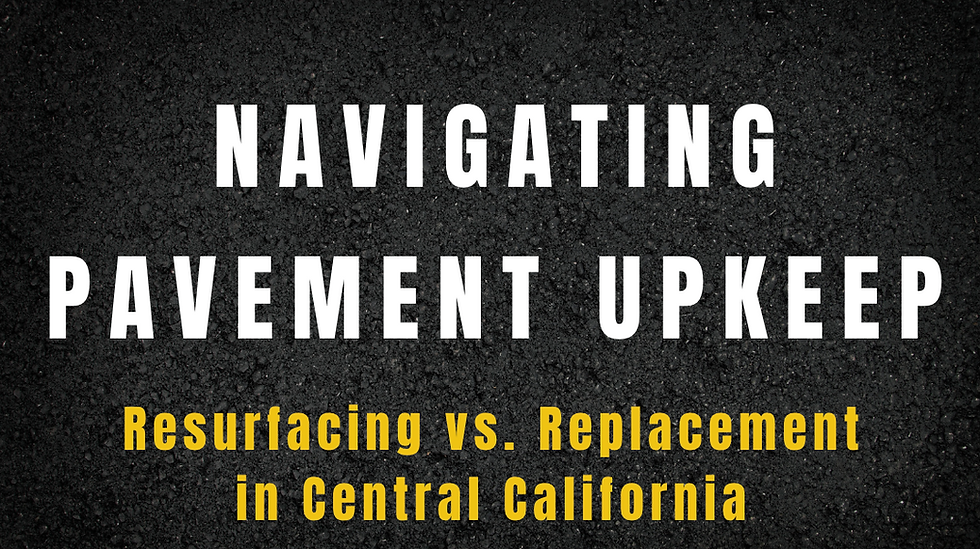Understanding Asphalt Compaction: Insights from Central Coast Paving
- Central Coast Paving
- Aug 20, 2023
- 2 min read

Compaction is one of the most critical processes in asphalt paving, having a significant impact on the performance and longevity of the paved surface. As experienced ground paving experts, we understand how proper compaction can enhance the quality and durability of asphalt. In this post, we'll delve into the process of compaction, why it's essential for asphalt, and the methods for achieving optimal compaction.
What is Compaction in Asphalt Paving?
Compaction is the process of reducing the volume of air in the asphalt material after it's been laid, leading to a denser and more solid surface. This is typically achieved through the use of specialized equipment, such as rollers, which apply force to the asphalt to reduce air gaps.
Why is Compaction Important for Asphalt?
Compaction has several key benefits for asphalt paving:
1. Durability: Properly compacted asphalt is more resistant to wear and tear, including rutting and pothole formation, thereby extending the pavement's lifespan.
2. Strength: Compaction increases the asphalt's load-bearing capacity, enabling it to withstand heavier loads without deforming.
3. Smoothness: A well-compacted surface is smoother and more uniform, providing a more comfortable and safe driving experience.
4. Water Resistance: Compact asphalt surfaces minimize water permeability, preventing water infiltration that can lead to damage and deterioration.
How to Compact Asphalt
Achieving optimal compaction involves a few key steps:
1. Asphalt Temperature: Asphalt needs to be at the right temperature for effective compaction. If it's too hot, the surface can deform under the roller; if it's too cold, it may not compact effectively.
2. Compaction Equipment: Different types of rollers—like static, vibratory, or pneumatic—are used for specific compaction tasks. Static rollers are typically used for initial and finish rolling, while vibratory rollers are used for the main compaction process.
3. Compaction Timing and Technique: The timing and technique of compaction are crucial. The process typically begins from the edges, moving towards the center, and should be completed before the asphalt cools down. Over-compaction can also be detrimental, causing cracking or distortion.
In conclusion, compaction is a crucial process in asphalt paving that can significantly influence the pavement's performance and durability. Choose Central Coast Paving to ensure your asphalt paving project will benefit from proper compaction for the best possible results. Contact us at (805) 665-3292 to get started today.




Comments